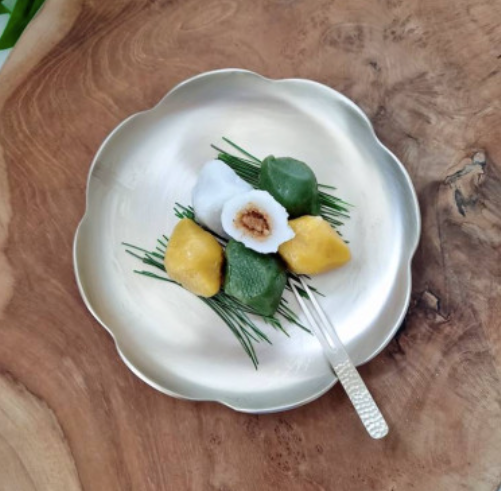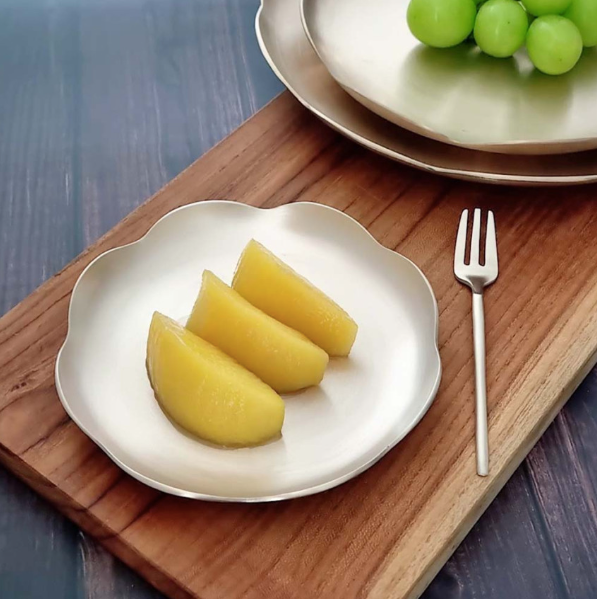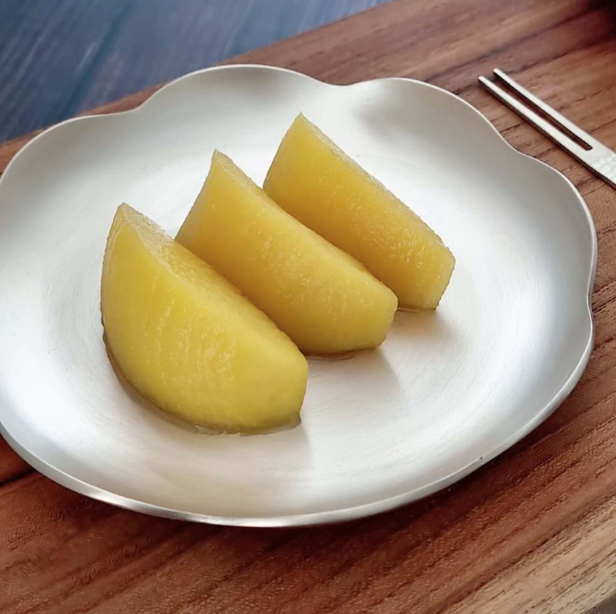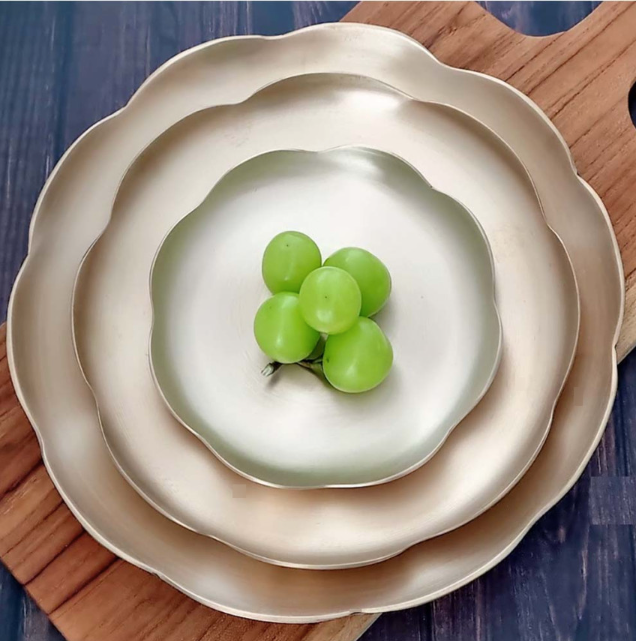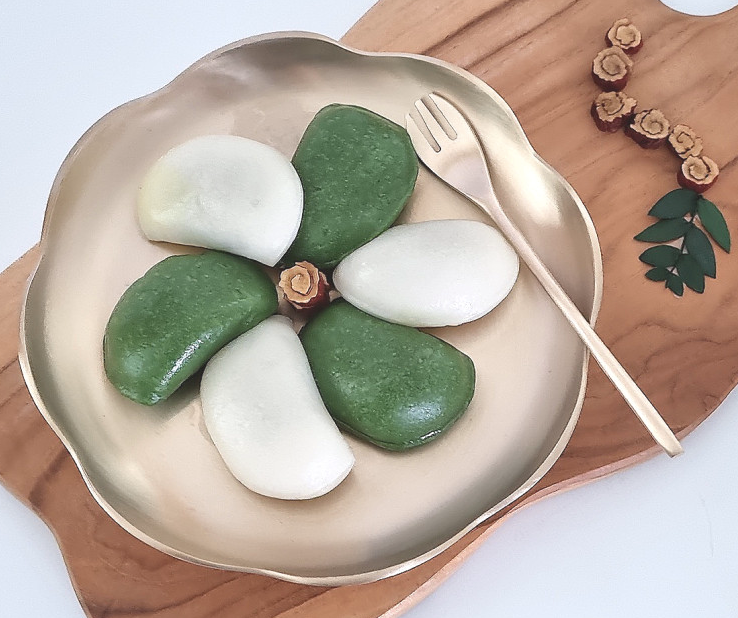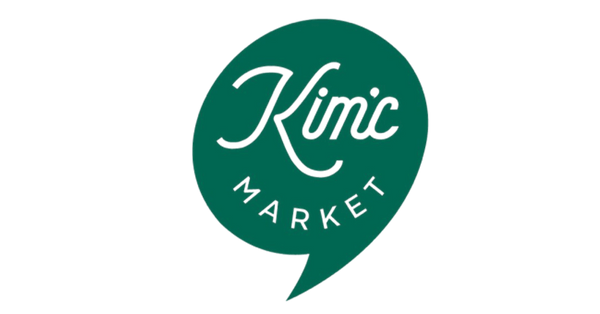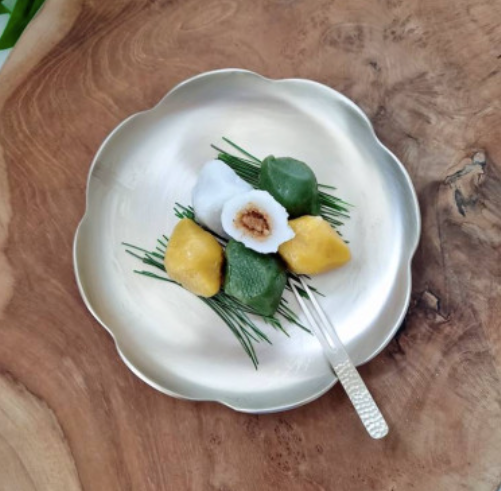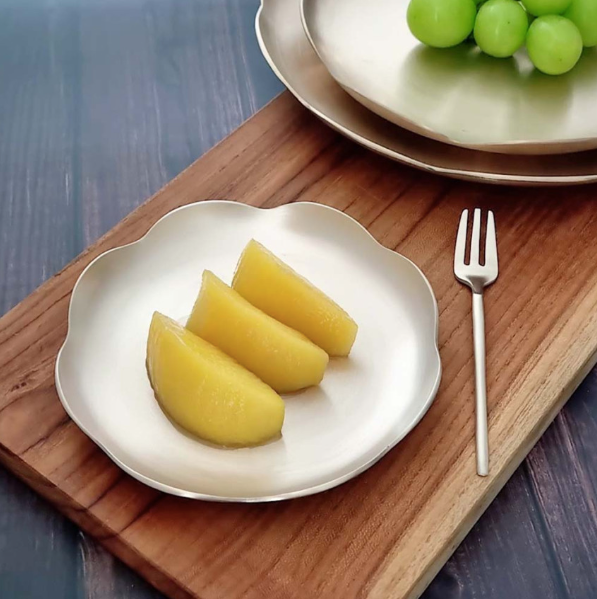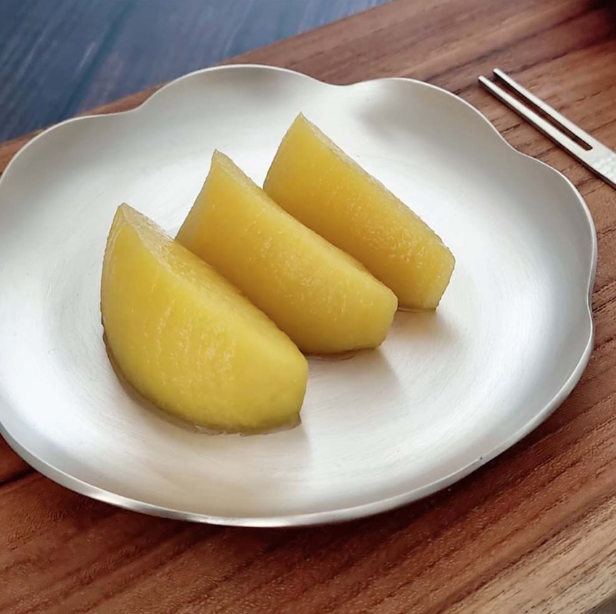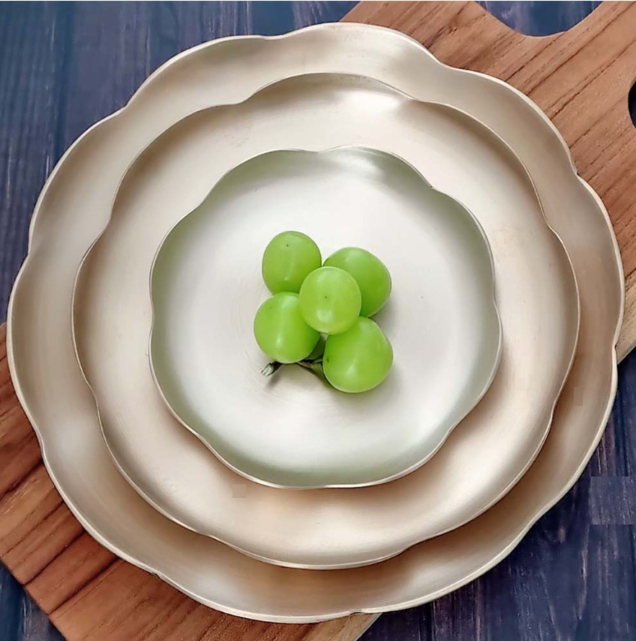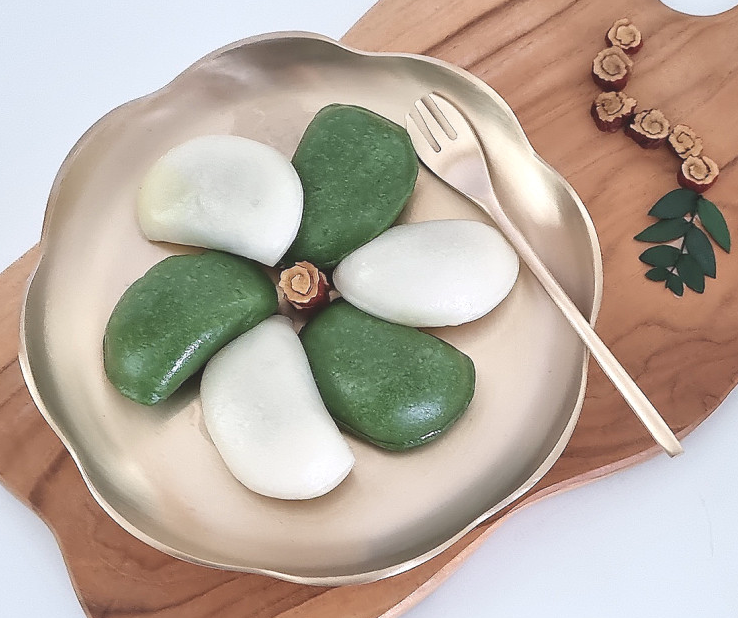Joseon Yugi
Bangjja Yugi Small Flower Plate
Bangjja Yugi Small Flower Plate
방짜유기 원형 꽃접시
Only 3 left in stock!
Couldn't load pickup availability
Highlights
Stunning Korean Traditional Yugi Bronzeware with Sterilization and Antibacterial Effects
Yugi is Korea's representative traditional tableware, made with Korea’s unique alloying technology of copper and tin (78% copper + 22% tin). In the past, yugi was limited to being part of tables of ancestral rites and ceremonies. But these days, the golden beauties are making a comeback and finding their way to modern tables at home, offered in various designs. The sterilization and antibacterial properties of the tableware are attracting much attention in particular, with the COVID-19 pandemic and related concerns.
What makes the yugi of Joseon Yugi more remarkable is that their casting technique uses mudflat soil. The method, known to have been established in the 16th century, is suitable for making small, intricate everyday tableware or those used for ritual rites. Machine-manufactured yugi have about them a sense of standardized uniformity. But each and every handmade yugi dish is unique, with its own shape and center of mass. Similar, but different. So each unit has its own personality and a lingering attractiveness. It truly is one of a kind.
살균과 항균 효과를 자랑하는 한국 전통 유기
유기란 구리와 주석을 우리만의 고유의 합금기술 (구리78%+주석22%)로 만들어내는 한국을 대표하는 전통식기입니다. 과거에는 제사나 차례등을 떠올리는 전통식기에 한정 지어졌다면 최근에는 황금색 빛깔을 아름다움과 다양한 디자인의 유기그릇이 나오기 시작하면서 생활식기로도 많은 관심을 받고 있죠. 특히 코로나19 이후에는 대표적인 항균과 살균의 기능의 식기로 더욱 큰 주목을 받고 있고 있습니다.
조선유기공방의 유기는 갯토(갯벌흙)을 이용한 주물사기술(주조)라서 더 특별해요. 16세기에 정착되었다고 알려진 이 기술은 작고 복잡한 생활식기나 제기등을 만들기에 적합한 방식이죠. 기계로 생산되는 유기에는 일률적이며 정형화된 느낌이 있습니다. 그러나 손으로 다듬어 완성하는 유기그릇에는 같은 그릇을 만들어도 무게중심이 틀리고 일률적인 느낌이 없습니다. 비슷하지만 조금씩 다른 느낌이 있지요. 그런 그릇은 쉽게 질리지 않는다고 생각합니다. 세상에 하나 뿐인 제품이라는 느낌을 주지요. 그래서 조선유기를 여러분께도 추천해요.
Description
The Single-Person Table Set, the Highest Form of Hospitality
In Korea, serving food in a single-person table set implies extending the utmost hospitality. It means a table has been set entirely for that person only, not to mention it is also more hygienic. And using yugi (유기) tableware with perhaps a stew or jjigae dish, then it will undeniably become a magnificent meal for one. Joseon Yugi tableware, each piece handmade by one of the few remaining yugi masters in Korea, is fundamentally different from the identical, machine-made mass-produced products. Their luxurious hues and simple but elegant lines go beautifully with Korean and food from any other country, creating a brilliant table setting.
Size:
Yugi flower plate small (6")
Materials
Yugi 100% (Copper 83.3%, Tin 16.7%)
* Copper and tin are made by Hanbaek Non-ferrous Co., Ltd., a primary metal manufacturing non-ferrous metal producer
* Composition chart received with purchase ensuring over 99% pure copper and tin
Yugi Bronzeware of Joseon Yugi
- Made with an alloy of copper (83.3%) and tin (16.7%) with absolutely no chemicals such as enamel
- Joseon Yugi manufactures yugi bronzeware using the traditional casting technique (estimated as 16th century, middle of the Joseon Dynasty, based on the Yongje Chonghwa document, 1525) using earth from mudflats.
- The manufacturing process entails a total of 9 steps. First, the casting process includes melting the bangjja iron, forming a mold out of mudflat soil, and pouring molten iron to make the bowl. After that, it goes through several stages of trimming and shaving by hand into the shape of the bowl. Following the final polishing stage, the product is complete.
- Yugi turns black when it comes in contact with toxins and has antibacterial properties. Meals in yugi are safe and kept warm for longer with the tableware's high heat conduction.
- Traditionally in Korea, the royal table for the king, the surat (수랏상), was set using special and luxurious tableware made of yugi.
- Thick yugi pots of Joseon Yugi are forged by repeating the process of heating in hot 2192 °F flames then quenching them four times by scarcely remaining artisan masters
On Your First Use
- Before your first use, soak in a lukewarm mixture of water and vinegar at the ratio of 30 to 1. You will see a soft golden tint appear. Mixing vinegar with dish detergent for your usual washes prevents stains.
- Seasoning your yugi with vinegar from the beginning in such a way will help prevent the distinct smell of non-ferrous metals.
- Exposure to flames will cause discoloration and food stains to appear. This is characteristic of yugi bronzeware. You can maintain the original color and shine by washing it with a scrub sponge and occasionally using the British brass dish detergent Astonish.
- To prevent discoloration, wipe with a dry towel after washing. When it comes in contact with water, Yugi stains easily.
- Yugi bronzeware will shine brighter with time and continued wiping.
- Any stains created during use can be removed by rubbing gently along the grain with a special yugi scrubber in a dry state, then wipe with a dry dishcloth. Then, wash with a regular sponge using dish detergent and completely dry it before storing. Special yugi scrubbers are sold by KIM'C MARKET.
사이즈
꽃접시 소 (15cm)
원료
유기 100% (구리 83.3%, 주석 16.7%)
* (주)한백비철 (1차 금속 제조사)에서 구리와 주석을 매입합니다. 매입시에는 순도 99% 이상의 구리성분검사표와 주석성분검사표를 받습니다.
조선유기공방의 유기의 제조 과정
- 구리(83.3%)와 주석(16.7%)을 합금하고 에나멜 등 화공약품은 일체 사용하지 않았어요.
- 조선유기공방은 갯토를 이용한 전통 주물사 기술(조선 중기 16세기 추정_문헌 용제총화 1525년 근거) 방식으로 유기를 제조합니다.
- 제조공정은 총 9단계입니다. 방짜쇠를 녹이고, 갯토로 금형을 다지고 쇳물을 부어 그릇을 만듭니다.(주물공정) 이후 그릇의 모양에 따라 일일이 손으로 다듬고 깎는 몇 단계 과정을 거치고(가질공정)을 거치고 최종연마를 통해 제품이 완성됩니다.
- 유기는 독성이 닿으면 검게 변하는 성질과 대장균이나 황색포도상구균 등에 대한 항균력을 가지고 있어요. 높은 열전도력과 항균력으로 위생적인 식사를 할 수 있어요.
- 한국에서는 임금님의 수랏상에 사용된 특별하고 고급스러운 식기랍니다.
- 조선유기공방의 유기는 몇 남지 않은 장인들이 1,200도의 뜨거운 불꽃에 유기를 달궜다가 담금질하는 과정을 4번이나 반복해서 두꺼운 가마솥을 만듭니다.
처음 사용할 때는
- 첫 사용시에는 물 30 : 식초 1 비율로 섞은 미지근한 용액에 1시간 담가주세요. 은은한 금빛이 나타납니다. 평상시에도 세제와 식초를 섞어서 설거지해주면 얼룩 방지에 효과적이에요.
- 이렇게 식초로 시즈닝을 초기 관리를 잘 해주고 길이 들면 특유의 비철금속 냄새 걱정도 덜 수 있습니다.
- 불이 닿으면 색이 변하고, 밥알 자국이 생깁니다. 이는 유기의 특성입니다. 초록색 수세미로 세척하고 영국세제 아스토니쉬(놋그릇 세제)를 가끔 사용하면 빛깔을 유지할 수 있습니다.
- 변색 방지를 위해서 세척 후에는 마른 수건으로 닦아주세요. 물기가 닿으면 얼룩이 쉽게 생깁니다.
- 유기 그릇은 오래 간직하고 닦을수록 빛이 납니다.
- 사용 중에 생긴 얼룩은 유기 전용 수세미로 결을 따라 문지르면 지워져요. 물기가 없는 상태에서 전용 수세미로 유기를 살살 문질러 얼룩을 제거해주시고 마른 헝겊으로 닦아주시면 얼룩이 금방 없어집니다. 이후 일반 수세미로 주방세제를 묻혀 세척을 한 번 더 해주고 물기를 완전히 없애 보관하세요. 수세미는 KIM’C MARKET에서 판매합니다.
About
Hwang Jooyeon is the current leader and steward of Joseon Yugi, an artisan family legacy spanning three generations. The heritage lies in crafting beneficent bangjja yugi bronzeware using the time-honored casting method. Originating in 1978 as a small brass shop founded by Hwang’s grandfather, Hwang Yeonggunong, and later expanded by his late father Hwang Joong-sik, the business evolved from making Buddhist ceremonial supplies to creating bronze relics and restoring cultural assets.
Since 1990, Joseon Yugi has specialized in yugi bronzeware and now focuses on the intersect of tradition and modernity, catering to the diverse tableware and home goods needed for contemporary life.
Since 2012, Joseon Yugi has actively participated in the National Palace Museum of Korea's Jongmyo ritual dishes restoration project, contributing to UNESCO-registered Jongmyo ritual events. Today, the six seasoned artisan masters that joined Hwang’s father in 1978 continue to guide the company alongside him.
Yugi Bronzeware Forging Process
* Made from a combination of copper (83.3%) and tin (16.7%) with absolutely no chemicals such as enamel
* Joseon Yugi pots are forged by repeatedly heating the metal in 2192°F flames and then quenched and cooled by specific artisan blacksmiths, few of which remain in the world
* The manufacturing process entails a total of 9 steps. The casting process includes melting the bangjja iron, forming a mold using mudflat soil, and then pouring molten iron to make the initial shape of the bowl. Afterwards, it is hand trimmed and hand shaved multiple times to perfect the form of the individual bowl. It is then polished, rested, and ready for consumer use.
안녕하세요. 조선유기공방의 3대째 가업을 잇고 있는 황주연입니다. 조선유기공방은 예로부터 이로운 그릇이라 불리는 방짜유기그릇을 전통 주물사(주조) 방식으로 제조하는 공방입니다. 경주 황남동의 작은 놋점(대장간)에서 할아버님이신 고 황영군옹께서 시작하던 일을 재작년에 작고하신 아버님(고 황중식)이 1978년도에 부천으로 상경하셔서 대지공예(금속)를 설립하셨고, 처음에는 불교제례용품과 구리 공예품을 만들다가 이후 기술력이 알려지면서 청동유물 및 문화재 복원일도 병행하게 되었습니다.
1990년 이후부터는 본격적으로 유기그릇을 제조하는 전문 공방으로 알려지게 되었습니다. 2008년 부터 조선유기공방으로 상호를 변경하여 조금씩 직접 유기그릇을 만들어 판매하였고 현대 소비자의 니즈에 맞는 다양한 디자인과 쓰임있는 그릇을 만들고자 노력하고 있습니다.
특히 2012년도부터 2021년 현재까지 거의 매해 국립고궁박물관이 주관하는 종묘제기 복원사업에도 유물복원업체와 함께 참여하고 있으며 저희가 만든 유기로 종묘제례행사(유네스코 등재)에도 쓰이고 있다고 합니다. 현재는 1978년도에 아버님과 함께 일을 시작한 여섯명의 장인들이 저와 함께 공방을 이끌어 가고 있습니다.
